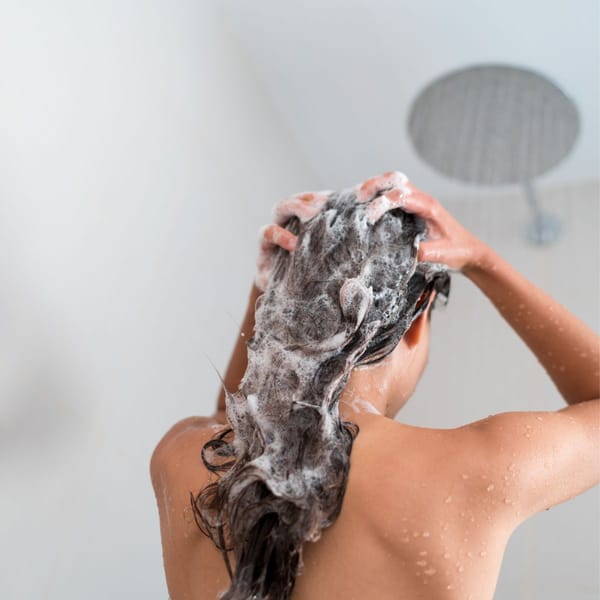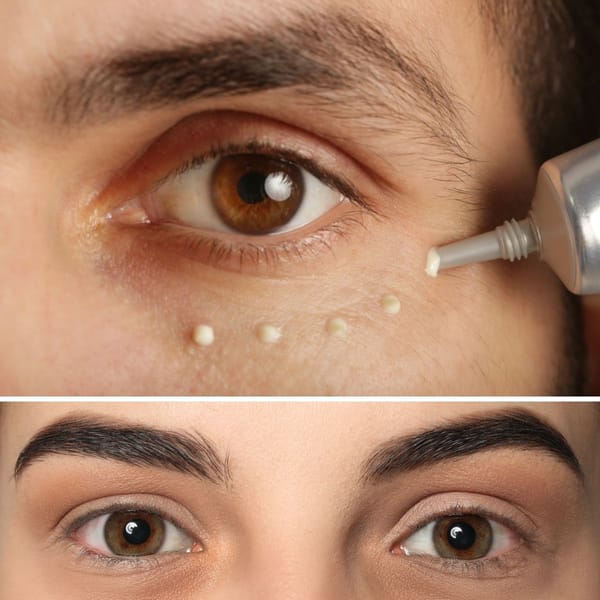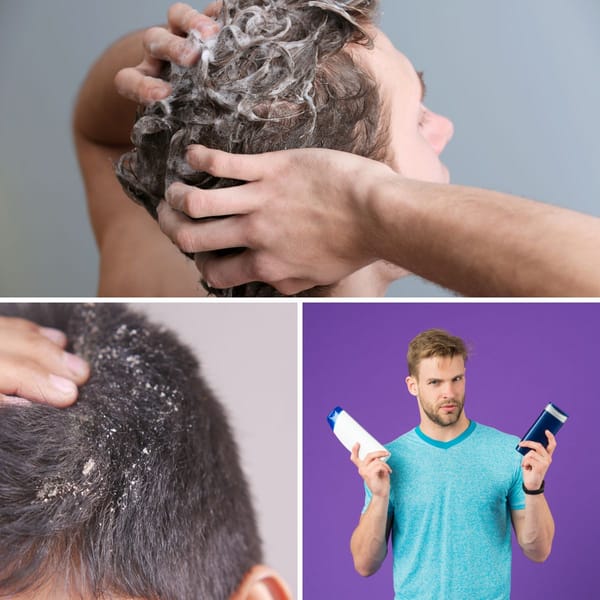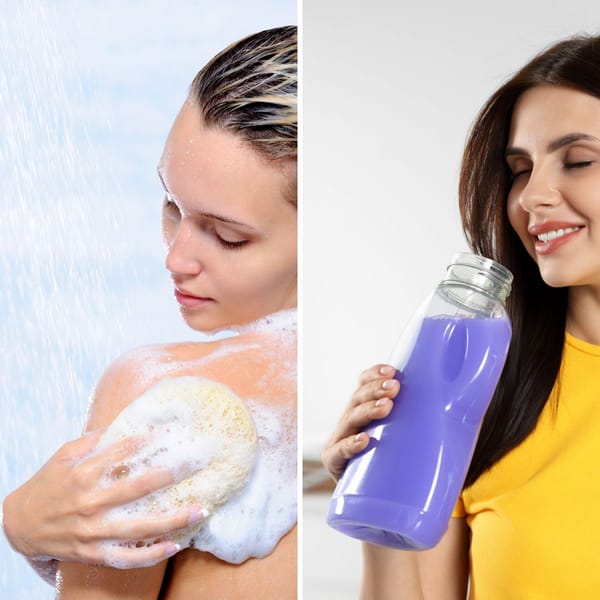Setting spray has become a staple in many makeup routines, promising to keep your makeup looking fresh and in place for hours. But is it really the miracle worker it's made out to be? In this comprehensive guide, we'll explore the disadvantages of using setting spray and how it might not always be the best choice for everyone.
Key Takeaways:
- Setting sprays can potentially dry out the skin, especially for those with already dry skin conditions.
- Certain ingredients in setting sprays may lead to skin irritation or breakouts, particularly for sensitive or very oily skin types.
- Over-reliance on setting sprays might discourage the use of other makeup products and techniques that could be more beneficial for achieving a long-lasting makeup look.
Potential for Skin Dryness
One of the primary concerns with many setting sprays, including popular options like the NYX Matte Setting Spray, is their potential to dry out the skin. This is especially problematic for individuals with naturally dry skin. The alcohol content, which helps to evaporate the liquid and set makeup quickly, can strip away natural oils, leaving the skin feeling tight and uncomfortable.
Aggravation of Sensitive Skin
Sensitive skin can react negatively to the various skincare ingredients found in makeup setting sprays. From alcohol to fragrances, these components can cause redness, itching, and other forms of irritation. Those with sensitive skin must scrutinize the ingredient list of products like the Urban Decay All Nighter Setting Spray to avoid any adverse reactions.
The Issue with Oily Skin
For those with very oily skin, using a setting spray might seem like a good idea to achieve a matte finish. However, some sprays can exacerbate oil production, leading to a shinier complexion or even breakouts. It's important to choose oil-free products designed to work with your specific skin type.
Makeup Interaction and Finish
While a setting spray aims to create a flawless look that lasts, it can sometimes interact poorly with other makeup products. For example, applying foundation over a light mist of setting spray can cause the makeup to become patchy or uneven. Additionally, not all sprays are compatible with powder foundation, which can lead to a cakey appearance.
The Risk of Clogged Pores
The ingredients in many setting sprays can contribute to clogged pores. This is particularly true for sprays that contain silicones or oils. When pores become blocked, it can lead to an increase in acne and blackheads, which is counterproductive when trying to achieve a clear and flawless makeup look.
Over-Reliance on Setting Sprays
There's a risk of becoming too dependent on setting sprays to keep makeup in place. This over-reliance can discourage the exploration of other makeup products and techniques that might be more effective or better suited to one's skin type, such as using a translucent powder or makeup primers.
The Cost Factor
Setting sprays can be an additional expense in your makeup routine. While there are affordable options like the NYX Matte Setting Spray, some high-end sprays such as the Urban Decay All Nighter can be quite pricey. This cost can add up over time, especially if you're using the spray daily.
Limited Nourishment and Hydration
When it comes to keeping makeup fresh and intact, makeup setting spray is often the go-to solution. However, unlike some makeup primers that contain hydrating and nourishing ingredients, setting sprays may not offer the same level of skin benefits. While they excel at sealing your look, they might not contribute much to skin hydration. This can be particularly concerning in a dry or humid climate where the skin craves extra moisture.
Moreover, individuals who use liquid foundation or other water-based cosmetics might find that their face feels tight after applying the setting spray. This sensation is a sign that the skin might not be getting enough hydration. To combat this, beauty enthusiasts should consider using a hydrating primer or moisturizer before makeup application. This ensures that the skin is well-prepared and nourished, allowing the setting spray to do its job without compromising skin health.
Potential Allergic Reactions
When reaching for that bottle of finishing spray to give your makeup that long-lasting hold, it's important to consider the potential for allergic reactions. Many setting sprays contain a variety of ingredients that, while effective for setting makeup, can cause adverse reactions in some individuals. Fragrances and preservatives often included to enhance the product's appeal and shelf life, can lead to redness, itching, or more severe skin irritations. It's always wise to patch-test a new setting spray on a small area of skin before committing to a full-face application.
Moreover, those with known sensitivities should scrutinize ingredient lists for common allergens. Brands like Urban Decay offer options that cater to sensitive skin, but vigilance is key. If you've experienced reactions to hair products or makeup primers in the past, be aware that similar components may be present in your setting spray. Opting for hypoallergenic or oil-free formulas can be a safer bet for reactive skin types, helping to prevent breakouts and ensure that your makeup routine remains a comfortable and confident experience.
The Importance of Proper Removal
In the quest for long-lasting makeup, setting sprays are a go-to solution. However, the durability that makes them so appealing also necessitates a thorough removal process. Water-based setting sprays may be easier to wash off, but those with stronger hold often require more effort to remove altogether. Neglecting to cleanse your face properly can lead to makeup residue, which in turn can clog pores and lead to breakouts. It's crucial to use a gentle yet effective makeup remover or cleansing oil to dissolve all traces of setting spray and makeup at the end of the day.
Furthermore, incorporating a makeup primer into your routine can help achieve a smoother application and simplify the removal process. Primers create a barrier between the skin and makeup, making it easier to cleanse thoroughly. Remember, the goal is to maintain healthy skin beneath the makeup, so investing time in a proper nighttime skincare regimen is just as crucial as applying your makeup. This ensures your skin can breathe and recover overnight, keeping it fresh and ready for the next day's adornment.
Compatibility with Different Makeup Types
Setting sprays are designed to work with a wide range of cosmetics, but not all makeup products respond the same way to their application. For instance, oil-free and water-based makeup might adhere differently under a setting spray than more emollient products like those containing petroleum jelly. Understanding how your makeup interacts with setting sprays is crucial to ensure a flawless finish.
Some finishing sprays are formulated to work best with certain types of makeup. For example, the Ben Nye Final Seal is known for its compatibility with heavy-duty stage makeup, ensuring long-lasting makeup even under intense lights and heat. On the other hand, everyday cosmetics might benefit from a lighter setting spray that prevents breakouts and doesn't weigh down the skin. Using a setting powder in conjunction with a spray to lock in your look is always a good idea, especially if you're using a brush to apply powder-based products.
Environmental Concerns
The environmental impact of setting sprays is another disadvantage to consider. The production and disposal of plastic bottles contribute to environmental pollution. Moreover, the sprays' ingredients can harm the environment once they're washed off and enter the water system.
The Alcohol Content
Alcohol is common in many setting sprays, including the Urban Decay All-Nighter Setting Spray. While it helps to set makeup, it can also be harsh on the skin, leading to dryness and irritation. Alcohol-based sprays should be used with caution for those with dry or sensitive skin.
The Alternative: Setting Powders
Setting powders, such as translucent or finishing powders, can be a great alternative to setting sprays. They help absorb excess oil and provide a matte finish without the potential skin irritation caused by the liquid counterparts. For those with dry skin, hydrating powders with ingredients like hyaluronic acid can offer a dewy finish without the drying effects.
Special Occasions vs. Daily Use
While setting sprays can be beneficial for special occasions when long-lasting makeup is essential, daily use might not be necessary. Overusing setting sprays can lead to a buildup of product on the skin, preventing the skin from breathing and leading to breakouts.
The Application Technique
The way you apply setting spray can also lead to disadvantages. Spraying too close to the face or applying too much product can cause makeup to smudge or dissolve. It's essential to use a setting spray correctly—holding the bottle at a distance and spraying in an "X" or "T" formation for even coverage.
The Hairspray Myth
Some people mistakenly believe that hairspray can be used as a makeup setting spray. This is not only ineffective but also harmful to the skin. Hairspray contains ingredients not meant for the delicate skin on the face and can lead to serious irritation and damage.
The Verdict on Different Skin Types
Not all setting sprays are created equal; what works for one skin type may not work for another. To avoid potential disadvantages, it's essential to choose a setting spray formulated for your specific skin type, whether it's dry, oily, sensitive, or combination.
Summary
Setting sprays can be a useful tool in achieving a long-lasting makeup look, but they come with their own set of disadvantages. From the potential to dry out the skin to the risk of clogged pores and over-reliance on the product, it's important to weigh the pros and cons before incorporating a setting spray into your makeup routine. Alternatives like setting powders and makeup primers can offer similar benefits without some of the drawbacks associated with setting sprays.
FAQ Section
Q: Can setting spray dry out your skin? A: Setting sprays can dry out the skin, particularly if it contains high amounts of alcohol. It's important for individuals with dry skin to choose hydrating formulas or consider alternatives like setting powders.
Q: Are setting sprays suitable for sensitive skin? A: While there are setting sprays formulated for sensitive skin, some ingredients commonly found in these products can cause irritation. It's crucial to read the ingredient list and opt for sprays that are free from irritants like alcohol and fragrance.
Q: Can I use hairspray as a setting spray for my makeup? A: No, hairspray should not be used as a setting spray for makeup. The ingredients in hairspray are not designed for facial skin and can cause irritation, dryness, and other skin issues. Always use products specifically formulated for use on the face.







